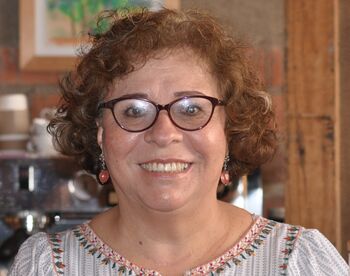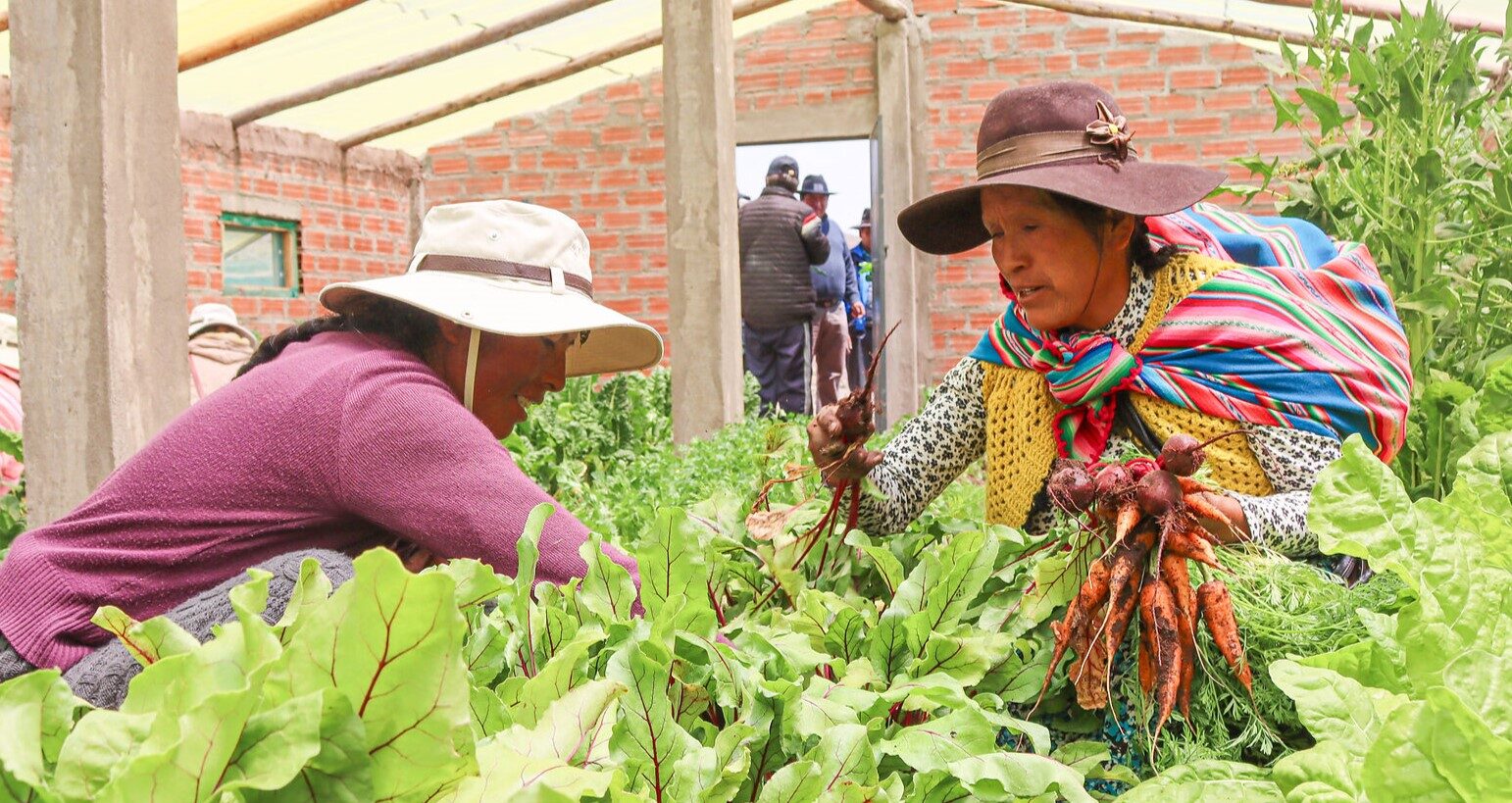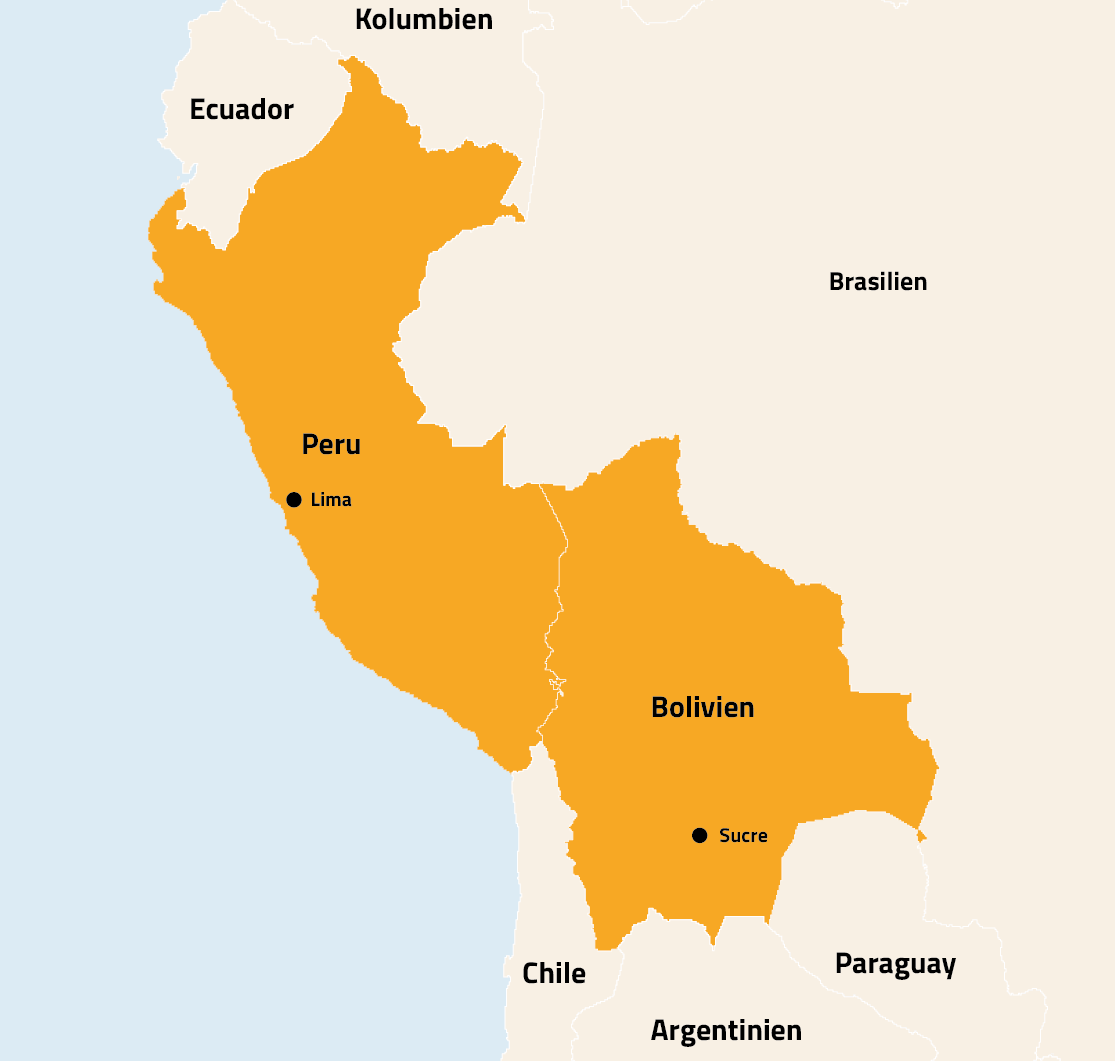
Jannet Villanueva
Coordinator Latin America (Bolivia and Peru)

Project Number: 420.1020
The rural population in the Andes is particularly affected by malnutrition and faces multiple challenges in the face of increasing weather extremes such as drought and frost. Our partner organizations support over 6,000 Quechua and Aymara-speaking smallholder households in rural and urban regions in the high mountains of Peru and Bolivia. Thanks to organic farming, they should be able to overcome anemia and nutritional deficiencies and their right to food should be guaranteed. Families are increasingly cultivating their land and fields in harmony with nature. With the help of local seeds, their own organic fertilizer and small greenhouses, they are creating self-managed new food systems. This enables economically poorer families to provide themselves with nutritious food all year round and opens up new income opportunities for them.
Women and women's associations are becoming key players in providing for their households, the village communities and the ecosystems on which their survival depends. They are learning to treat nature with respect and are constantly working on adapting their agriculture to climate change. Families from one of the most marginalized population groups in the Andes are thus working on their own resilience, health and autonomy.
In the strategic area of food sovereignty, we work with numerous indigenous smallholders. The projects are being developed in the greater Cusco area (Peru) and in the catchment area of Lake Titicaca (Bolivia and Peru). In these areas, the population lacks a varied, balanced and healthy diet. However, extreme weather events such as drought and prolonged extreme cold, which leads to frost, are also increasing in intensity and frequency due to climate change. As a result, the right to food and health is being curtailed for many indigenous smallholder families.
The search for strategies to adapt to climate change and the attempt to meet food needs often lead to natural resources being overused - on the one hand by the state-supported agro-industrial cultivation of potatoes and quinoa, and on the other by smallholder families themselves, who want quick solutions and also resort to pesticides, genetically modified seeds or artificial fertilizers. This burdens households with additional expenditure and leads to increasing dependence on the agro-industry and a considerable loss of biodiversity and soil fertility.
Key role and vulnerability: women in agriculture
Poverty in the project regions often causes men to temporarily migrate to cities or mining areas in order to improve their household income, either during the week or for several months at a time. The women are then usually left behind in the households to look after the farm and the children. However, if there is a lack of water or if the water and soil are polluted and the livestock and children cannot drink enough or the field cannot be sufficiently irrigated, the mothers have to see how they can manage their household in order to get enough water and food.
Food insecurity also increases the risk factors for sexualized violence, which is widespread. Despite their great achievements, women are disadvantaged in terms of land ownership and the right to have a say in village communities or at local level, and they are also severely affected by sexualized violence. Our projects work with transformative approaches that empower women in particular and enable them to take decisive action against violence.
We support families so that they can create new sustainable food systems with the help of local seeds, self-produced organic fertilizer and small greenhouses. The combination of traditional knowledge with modern agroecological approaches secures the project participants' right to food and creates new income opportunities for them.
In terms of promoting equal opportunities, women and women's associations in particular are supported. We promote cross-project training courses that specifically address the links between climate change and gender equality and provide space for the prevention of sexualized violence.
The direct target population comprises around 6,000 people. They are mainly small farming families in the regions of Cusco and Puno in Peru and in the La Paz region in Bolivia, who live in the area around Lake Titicaca.
The projects are also aimed at disadvantaged people from marginalized urban settlements in El Alto (Bolivia) and Cusco (Peru). As women in the region continue to be socially and economically disadvantaged, our projects particularly promote work with women and women's associations, which make up more than 60 percent of the target population.
Our partner organizations carried out a total of eleven projects between 2022-2024, reaching around 6,300 participants in Peru and Bolivia.
The construction and commissioning of greenhouses to supply families with tomatoes, spinach, carrots and beetroot as well as Andean berries and strawberries all year round has contributed to a significant improvement in the families' diet. The project participants were able to receive further training in agroecological cultivation methods, such as agroforestry systems, cultivation associations, soil improvement, integrated pest control, seed conservation and production as well as the production of organic fertilizer. This has enabled the families to increase the area under cultivation and improve the productivity of existing farmland. The participants have solid knowledge to continue their food production independently.
New products such as papa nativa, (medicinal) herbs, flowers, honey and maize flour have also been identified as suitable for sale and their production promoted, which has provided many families with welcome income opportunities.
Project participants were trained to make new baked goods, pasta dishes and stews for sale from their agricultural produce. Participants were also supported in finding new sales markets. They can now sell their vegetables at larger weekly markets in urban settlements.
Against the backdrop of increasing drought, special emphasis was placed on the creation of local seed banks and the improvement of water management in order to ensure permanent access to water and the food autonomy of the communities.
Due to drastic phases of drought and prolonged cold spells, which have particularly affected the project regions in recent years, our partner organizations have been working intensively since 2022 to create infrastructure in the form of infiltration trenches, water retention basins and promote reforestation for long-term water extraction.
Water extraction for disaster protection from 2025 with its own project number
These measures will help to reduce the risks posed by droughts. They will be supplemented in the course of 2026 by a long-term reforestation strategy that will help to moisten the soil and revitalize important ecosystems. Since January 1, 2025, these activities have been financed by a special fund with the project number 400.1022. Donations and funding contributions are used on an ongoing and targeted basis in the area of water catchment to adapt to climate change in the Andes.
See here our 5-part documentary film to our food sovereignty projects in the Andes.

Listen here to the Podcast "Voices of hope":
Episode 4 "The urban gardeners of El Alto

Episode 5 "Women smallholders in the fight against climate change"


2.3 billion people are affected by malnutrition (Food and Agriculture Organization 2021)
75% of these people live in rural areas
Over 420,000 people had to flee their homes
CHF 396,700
Mission 21
Protestant Mission Basel
PO Box 270
Missionsstrasse 21
4009 Basel, Switzerland
Tel.: +41 (0)61 260 21 20
info@mission-21.org
Donation account Switzerland:
IBAN: CH58 0900 0000 4072 6233 2
Tax exemption number:
CHE-105.706.527
Donation account Germany:
Savings Bank Lörrach-Rheinfelden
Swift BIC: SKLODE66
BLZ: 683 500 48
IBAN: DE39 6835 0048 0001 0323 33
Account No. : 1032333